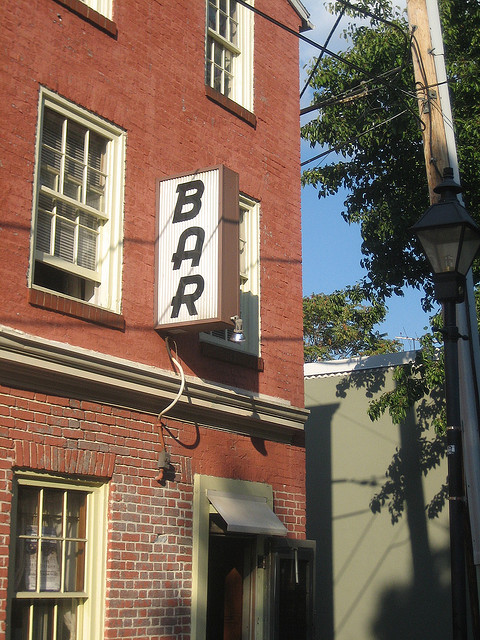Baltimore City Liquor Board has lot of problems, auditors find

A legislative audit has uncovered serious management problems in the Board of Liquor License Commissioners, which regulates 1,360 bars, night clubs and restaurants in Baltimore.
By Becca Heller
The regulators that oversee Baltimore’s 1,360 bars, night clubs and restaurants have serious problems managing the licensing, inspection, and disciplinary action of the liquor industry, state auditors found.
The Board of Liquor License Commissioners lacked written policies in many areas, failed to collect proper documentation, issued licenses before payment was made, did not adequately monitor or evaluate its staff, and staff did not perform as many inspections as they were supposed to, said the 66-page audit report released Wednesday.
“A lot of what they do is informal which leads to inconsistencies in the way things are handled,” said Tom Barnickel, the chief legislative auditor. The audit had been requested by the Maryland General Assembly.
The Board of Liquor License Commissioners responded to the audit with line by line answers to every recommendation from the auditors, agreeing with many of the recommendations but challenging others.
Lack of proper documents
The report revealed that, though state law requires a person to give proof of certain documents in order to obtain a liquor license, “BLLC routinely issued licenses without obtaining these documents.” For example, auditors found that the liquor board did not verify that applicants had a valid trader’s license in 358 of 1,360 cases.
The liquor board acknowledged that it was essential to obtain all personal documents before licensing, but pointed out that in some cases this was not feasible.
“It is not legally possible to require proof of payment of personal property taxes before a renewal license is issued,” the Liquor Board explained in its response.
The audit also found that the Liquor Board often failed to determine if license applicants met state requirements such as a minimum distance from churches and schools for new licenses, or that applicants had obtained a criminal background check.
Inspections inconsistent
The audit found that the board’s inspection procedures were inconsistent in both quantity and frequency.
The report said, “96 licensees were inspected eight or more times [in 2011] whereas 202 licensees received no inspection during this year.”
Though the Liquor Board did not respond to this concern directly, BLLC did give assurance that clear procedures would soon be established and enforced.
“We agree, and plan to develop a comprehensive set of written protocols for all aspects of Inspection Division structure and function,” BLLC responded. “These policies will be furnished to every inspector and will remain available in a centralized location within the division office.”
Another issue the audit brought to light was the failure of the board to consistently respond to violations of standard procedure. Not only did the BLLC frequently miss opportunities to enforce state policy, but the board’s staff also routinely assessed fines for violations without consulting the board.
“BLLC could not account for all fees for licenses issued and did not always assess late fees,” the report stated.
To this, the Liquor Board explained that the auditors were working with inaccurate information.
“The license fees described as not being paid were associated with closed establishments for which no license was issued,” the Board responded. “If a renewal application was accepted for the following year, the license fee was paid.”
According to the audit, in FY 2012 BLLC brought in $2.2 million in revenue and spent approximately $2.0 million.
Report: less than half of inspectors needed
The report concludes with analysis of BLLC’s fragmented system of management and oversight. This, in turn, produced inefficiency, poor enforcement of policy, and virtually no employee performance evaluations. For instance, internal documents said that inspectors should complete four routine inspections a day, but the audit found that no full-time inspector regularly met this requirement.
“We estimate that BLLC could meet it’s budgeted goal of completing 4,900 routine inspections using as few as six full-time inspectors,” the report states. “At the time of our audit, BLLC employed 14 full-time employees and 5 part-time inspectors.”
The liquor board respectfully disagreed, saying six full-time inspectors would be insufficient.
“While we concur with the need for required uniform inspections, we believe the balance of this recommendation is mistaken,” BLLC responded.
The board explained that it typically needs to respond to 311 phone complaint responses concurrently, and explained that six inspectors would simply not be enough to do this work.
In an interview, Barnickel expressed confidence that the liquor board is dedicated to improving operations and said that a change in management should be the board’s first priority as it moves forward with the suggestions in the audit report.
“Based on their responses, they’ve taken the issues we’ve presented seriously,” said Barnickel. “I would expect that better management and oversight will be implemented, which will lead to better efficiency and stronger enforcement of policy.”

MarylandReporter.com is a daily news website produced by journalists committed to making state government as open, transparent, accountable and responsive as possible – in deed, not just in promise. We believe the people who pay for this government are entitled to have their money spent in an efficient and effective way, and that they are entitled to keep as much of their hard-earned dollars as they possibly can.

And they are all serving drunks till all hours.
With the Drunk driving deaths approaching the gun murder rate that people are screaming about> http://zautos.com/dui-fast-facts/ when are we going to do something about that?